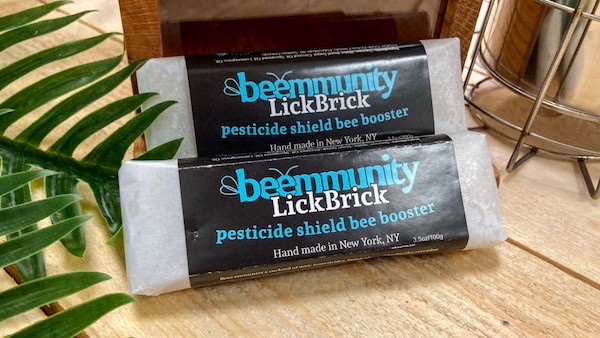Nearly 85% of the food that humans produce requires the help of a pollinator. One of the hardest working insects in this group is the bee, which pollinates an estimated 1 in 3 bites of food we eat. However, we have all seen the studies and data that indicate more than half of these essential creatures in North America are in decline. Interestingly, a new technology developed by scientists at Cornell University may have found a way to help protect bees from culprits like pesticides.
Study after study has shown that wax and pollen in a majority of the hives in the U.S. are contaminated with some type of pesticide and in many cases multiple pesticides, just depending on the region and part of the country they are testing. The problem they are finding is that overexposure to the pesticides can potentially lower a bee’s immunity to devastating varroa mites and various pathogens. The good news is, they are finding that certain enzymes can detoxify some of the compounds found in common pesticides. James Webb, a recent biological and environmental engineering graduate from Cornell, came up with the idea of using them as a tool to help bee colonies. Webb now leads Beemmunity, a startup he co-founded to help bring the groundbreaking technology to market.
In a nutshell, the researchers settled on a strategy to detoxify pollinators via their food. They found a group of enzymes called phosphotriesterases that can break down organophosphates, which account for more than a third of insecticide sales worldwide and actually render them harmless. However, they don’t work well in the digestive tracts of bees because of their high acidity. So the team worked out a way to deliver the enzymes via a pollen-sized microparticle that provides a protective casing and allows the enzymes to pass through the bee’s crop (stomach) safely.
Microparticles can be mixed with pollen patties or sugar water, and once ingested, the safe-guarded enzymes pass through the acidic crop to the midgut, where digestion occurs and where toxins and nutrients are absorbed. There, the enzymes can act to break down and detoxify the organophosphates. In live experiments exposing bees to toxic levels of the organophosphate pesticide malathion, bees that were fed the microparticles had a 100% survival rate, while the unprotected bees died.
Following that stunning success, the team worked to broaden the range of pesticides, in including neonicotinoids. They developed an alternative solution for the microcapsules that include an absorbent oil that acts like a sponge to absorb pesticides. Once in the bee’s digestive tract, the so-called “micro-sponges” soak up toxins that the bee ingests until it is eventually excreted naturally.
Beemmunity is now running colony-scale trials on 240 hives on the East Coast. If all goes well, they hope to launch products that can be used on the farms starting in early to mid-2022. They are also working on consumer bee feeders that could provide easier and more widespread protection for wild bee species. Learn more at Beemmunity’s website HERE.








